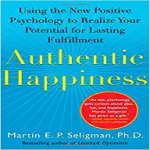- Murray created measures of the strength of illusions in romance by asking many married and dating couples to rate themselves, their actual partner, and an imaginary ideal partner on a variety of strengths and faults. She also asked friends to fill out these ratings about each member of the couple as well. The crucial measure is the discrepancy between what your partner believes about your strengths and what your friends believe. The bigger the discrepancy in a positive direction, the bigger the romantic “illusion” that your partner has of you. Remarkably, the bigger the illusion, the happier and more stable the relationship. Satisfied couples see virtues in their partners that are not seen at all by their closest friends. In contrast to this benevolently distorting glow, dissatisfied couples have a “tainted image” of each other; they see fewer virtues in their mates than their friends do.
- all permutations of optimism and pessimism allow for viable marriage, except one: two pessimists married to each other. When two pessimists are married, and an untoward event occurs, a downward spiral ensues… In the most painstaking study of optimism and pessimism in marriage, fifty-four newlywed couples were tracked over four years. Marital satisfaction and pessimistic explanations went hand in hand, suggesting that just as positive explanations create more marital satisfaction, this satisfaction also creates more positive explanations. Of the fifty-four couples, sixteen divorced or separated over the four years, and the more positive their explanations, the more likely they were to stay together
- depressed people had an equal ratio: one bad thought to each good thought. Nondepressed people had roughly twice as many good thoughts as bad ones. This idea is literally simpleminded, but it is powerful. It is also supported by the results of therapy: Depressed patients who improve move to the 2:1 ratio from their original 1:1 ratio. Those who do not get better stay at 1:1.
References
- The quest for conviction: Motivated cognition in romantic relationships, What the motivated mind sees: Comparing friends’ perspectives to married partners’ views of each other
- The impact of attributions in marriage: A longitudinal analysis, Attributions in marriage: state or trait? A growth curve analysis
- Cognitive balance and psychopathology: Evaluation of an information processing model of positive and negative states of mind, Shifts in affective balance during cognitive therapy of major depression
